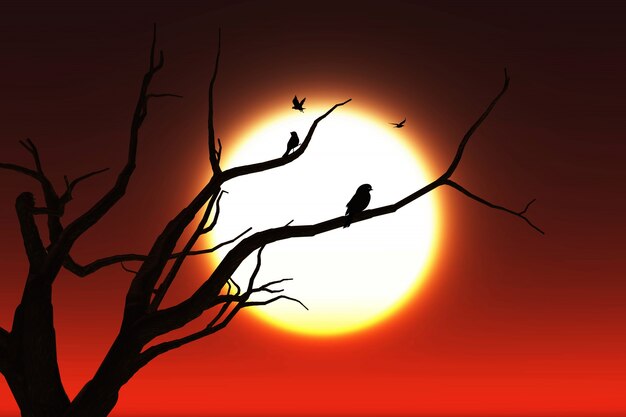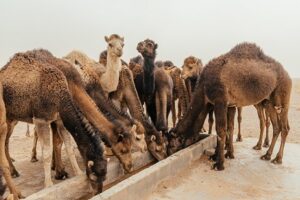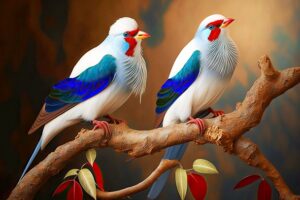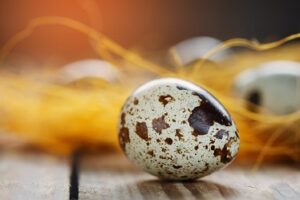Nightfall in Florida isn’t just a time of hushed whispers among the palm trees; it’s a symphony orchestrated by some of the state’s most enigmatic residents—the birds that sing at night. As the sun sets and darkness blankets the landscape, an intriguing world of nocturnal melodies unfolds. Let’s delve into this captivating realm, exploring the species, the reasons behind their nighttime serenades, and the cultural and scientific dimensions that enthrall their songs.
Table of Contents
ToggleNocturnal Bird Species in Florida
Florida’s diverse ecosystem hosts an array of nocturnal bird species. From the distinctive call of the Eastern Whip-poor-will to the haunting hoots of owls, these birds add a unique soundtrack to the night. Understanding the characteristics of these species enhances our appreciation for their songs.
Why Do Birds Sing at Night?
The nocturnal songs of these birds aren’t merely random melodies. Evolutionary forces have shaped this behavior, and delving into the reasons behind their nighttime serenades offers insights into their fascinating world.
Environmental Influences
Florida’s lush landscapes and varied ecosystems influence the behavior of nocturnal birds. From the swamps of the Everglades to the coastal habitats, the environment plays a crucial role in shaping their songs. Moreover, weather patterns contribute to the burstiness and cadence of their tunes.
Cultural Significance
Beyond biology, the songs of night-singing birds have deep cultural roots. Indigenous beliefs and modern interpretations intertwine, creating a rich tapestry of folklore and symbolism around these nocturnal melodies.
Scientific Studies and Findings
The scientific community has dedicated considerable effort to unraveling the mysteries of night-singing birds in Florida. Recent studies have unveiled new facets of their behavior, adding depth to our understanding of their roles in the ecosystem.
How to Identify Night-Singing Birds
For aspiring birdwatchers, recognizing nocturnal birds involves more than just keen eyes. Distinctive traits and listening techniques become paramount, offering a rewarding challenge for those seeking to explore the nocturnal avian world.
Conservation Efforts
Despite their mysterious allure, night-singing birds face threats. Understanding these challenges and participating in conservation efforts are crucial to ensuring their continued presence in Florida’s skies.
Ecotourism Opportunities
Florida’s nightscapes offer more than just a spectacle for locals; they present a unique ecotourism opportunity. Night birdwatching experiences allow enthusiasts to connect with nature responsibly while contributing to the conservation cause.
Capturing Night Bird Songs
Advancements in technology have opened avenues for capturing the ethereal melodies of night-singing birds. From specialized microphones to smartphone apps, enthusiasts can now explore audio explorations.
The Role of Night Singing in Bird Communication
The songs of nocturnal birds aren’t mere musical interludes; they are integral to communication. Understanding the purposes behind these songs unveils a complex web of interactions between different bird species.
Challenges in Studying Night-Singing Birds
While technology has aided researchers, studying night-singing birds presents challenges. Limitations in observation and the vastness of their habitats contribute to the ongoing mystery surrounding these birds.
Nocturnal Bird Songs and Human Well-being
Beyond ecological importance, the songs of night-singing birds impact human emotions. Exploring their influence on mood and their representation in literature and art adds a layer of appreciation for these nocturnal melodies.
Urbanization Effects
The delicate balance between night-singing birds and human activities is disrupted as urban areas expand. Understanding the effects of urbanization on these birds is essential for developing strategies to mitigate potential harm.
Conclusion
In the quiet darkness of Florida nights, the songs of nocturnal birds create a harmony that resonates with nature’s complexity. From cultural significance to scientific intrigue, these birds enrich our understanding of the natural world. As we marvel at their songs, let’s also commit to preserving the habitats that allow these enchanting melodies to persist.
Frequently Asked Questions
- Can I attract night-singing birds to my backyard?
While you can create a bird-friendly environment, attracting specific species may be challenging. Consult with local birding experts for guidance.
- Are night-singing birds only found in Florida?
No, night-singing birds inhabit various regions globally. However, Florida’s diverse ecosystem supports a unique array of species.
- Do all nocturnal birds sing, or is it specific to certain species?
While many nocturnal birds produce sounds, not all of them are considered melodic songs. Some communicate through calls or other vocalizations.
- How can I record the songs of night-singing birds without disturbing them?
Use specialized recording equipment with a focus on minimizing disturbance. Keep a safe distance and avoid using bright lights.
- Are there any ongoing research projects on night-singing birds in Florida?
Several research initiatives are exploring different aspects of the behavior, ecology, and conservation of night-singing birds in Florida.





